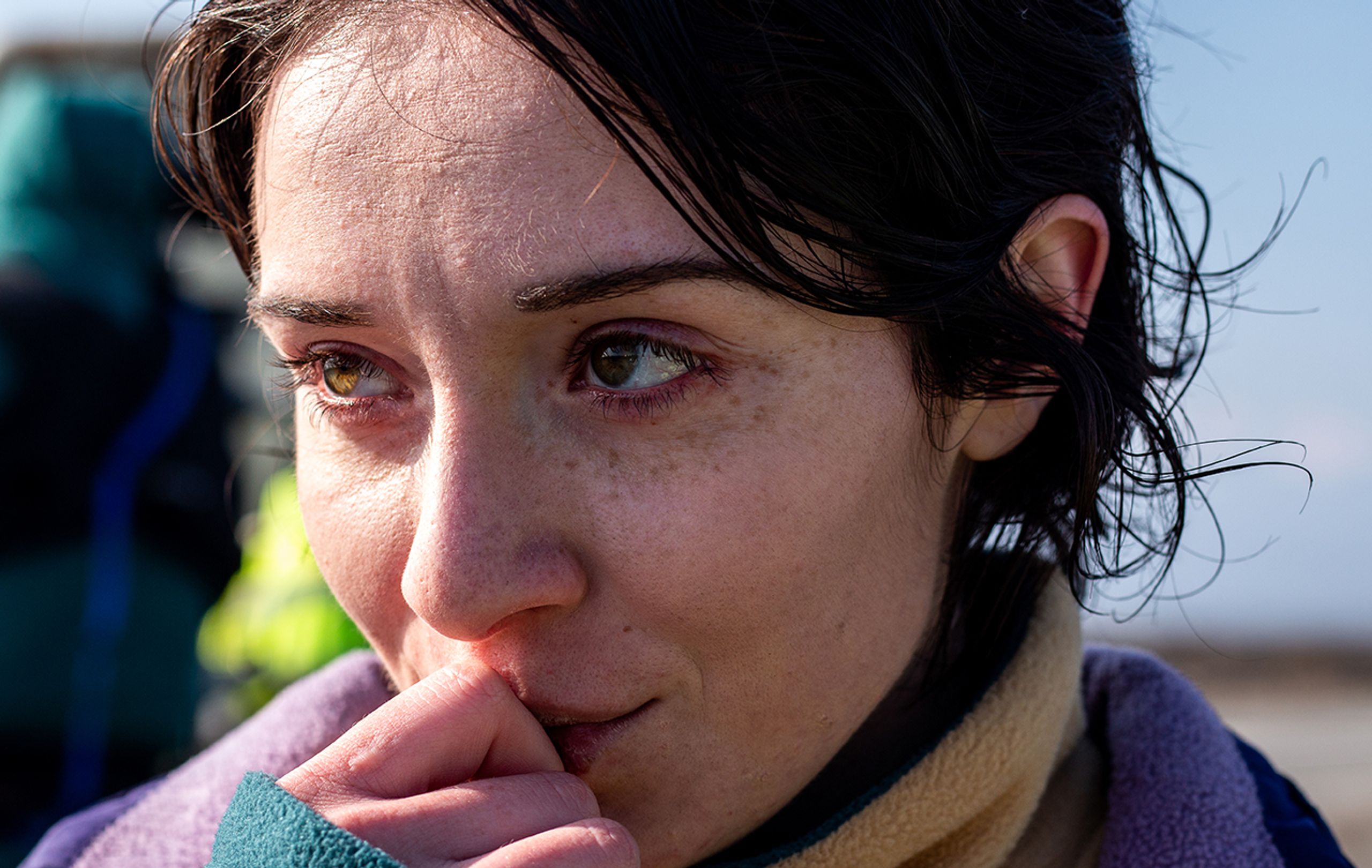There are clenched fists aplenty in Unclenching the Fists. Stuck in a former mining town high in the mountains of North Ossetia, its characters are as weighed down with misfortune as they are with strained mitts. There are the protagonist Ada’s, racked with frustration; her brother Akim’s, all white-knuckled and ready for swinging; but most obviously there are their father Zaur’s, strict as iron and with a rigor-mortis grip. The film is the second feature from Kira Kovalenko, a filmmaker from Nalchik, in the foothills of the Caucuses—a locale just next Ada’s, and that sense of place is apparent. The film, a bleak and provocative work with few (if any) soft edges, premiered in Cannes’ Un Certain Regarde sidebar earlier this summer, where it was awarded the Grand Prix by a jury led by Andrea Arnold—another filmmaker synonymous with tales of young women and isolated places, the lecherous men they encounter, and their dreams of breaking free.
Kovalenko’s emergence is worth noting. Selected in 2015 as one of twelve students to attend Aleksandr Sokurov’s already-fabled film workshop at the Kabardino-Balkarian State University, she co-wrote (with Kantemir Balagov, another Sukurov alumnus) and directed her first feature Sofichka, an adaptation of the Fazil Iskander classic a year later, aged 25. With Unclenching, she has gained the significant backing of Alexander Rodnyansky, the great Russian producer behind Zvyagintsev’s Leviathan and Loveless, as well as Balagov’s Beanpole, a film whose Cannes success (if not quite its artistic achievement) Kovalenko has mirrored here.
In Unclenching, Milana Aguzarova plays Ada, a young woman mired in a state of stunted adolescence. Kovalenko suggests that, for this, Ada can in some ways thank her creepy brother (Khetag Bibilov), but mostly her father Zaur (Alik Karaev), a man so despotic he can barely hold back a crocodile grin as he forces Ada to pour her perfume down the sink. (Lest she attract any unwanted attention, he also forces her to cut her hair.) Adding to the villainy, Kovalenko shows him exaggerating an illness in order to gain his children’s sympathies while hiding the apartment’s only key and, most nefariously of all, Ada’s passport. Together the family lives in a detached (in many ways) concrete slab of an apartment block that the neighborhood youths pelt with fireworks on a daily basis—leaving a façade about as fragmented as young Ada’s deteriorating mental state.
In Kovalenko’s world, the act of leaving one’s tormentors is easier said than done. The director takes Zaur’s refusal to let his own daughter grow up as the catalyst for an increasingly queasy co-dependency; in one moment of desperation Ada admits, “I’m out of time. I might stay like this.” Hope arrives in the form of her older brother Akim (Soslan Khugaev), who, having moved to Rostov, remains the only one to have escaped her father’s clutches. The film’s energies become compellingly twisted, yet we are seldom offered respite from those engulfing storm clouds. There is thankfully style, even some surrealism to offset the gloom: shot by Pavel Fomintsev, Fists‘ images have a saturated, almost golden hue that occasionally threatens to lift the mood. As do some nicely kinetic sequences, e.g. Ada being spun around the back of a car mid-donut. Hid behind a zipped-up jacket, the wide-eyed Aguzarova brings no shortage of pathos to the role––her very first onscreen––not least when we learn of an awful event from her past it would be remiss to reveal here.
Yet the experience is nothing if not grueling, and Fists‘ willingness to heap misery on characters who are already truly down ultimately leaves a callous taste in the mouth. Ada must face humiliation upon humiliation, not least a deeply unsettling sex scene. And then there is the matter of her family’s physical interactions, both their fights and their affection, which would be deeply unsettling even without the insinuations of incest. Clenched fists? Try gritted teeth.
Unclenching the Fists screens at the New York Film Festival.

